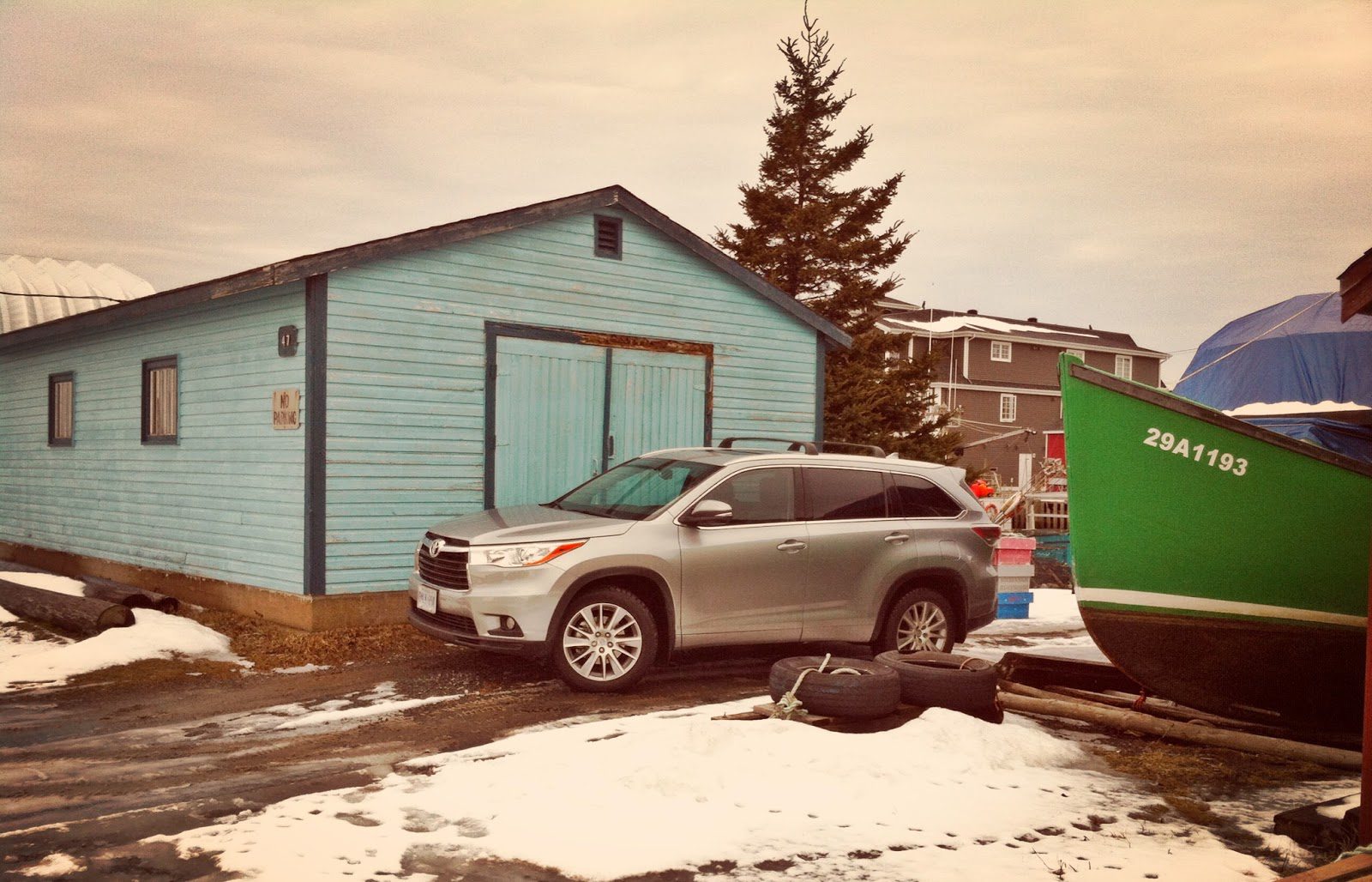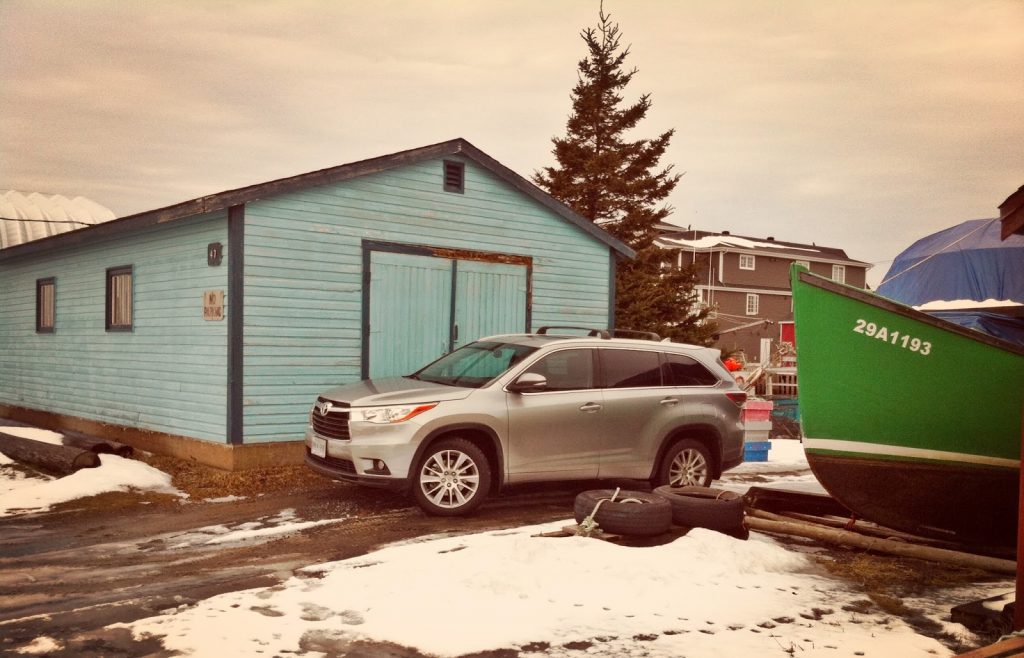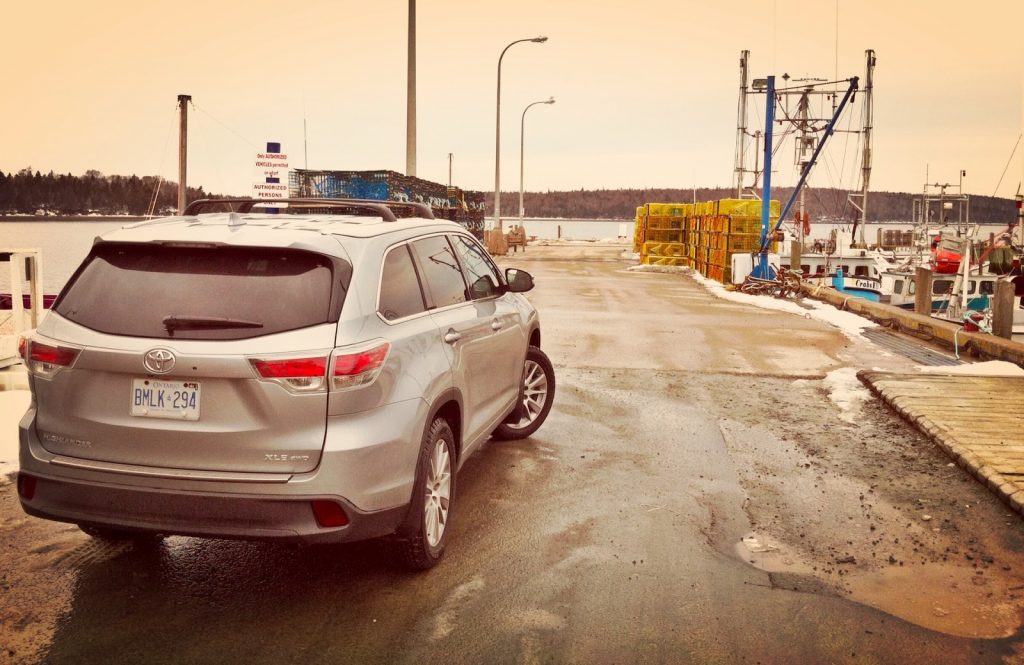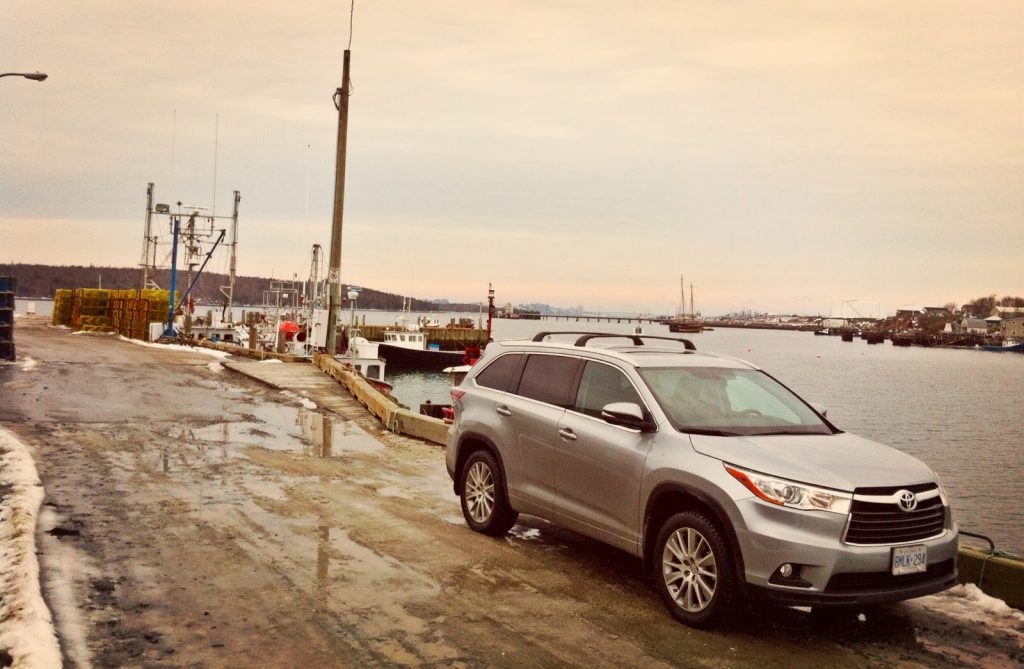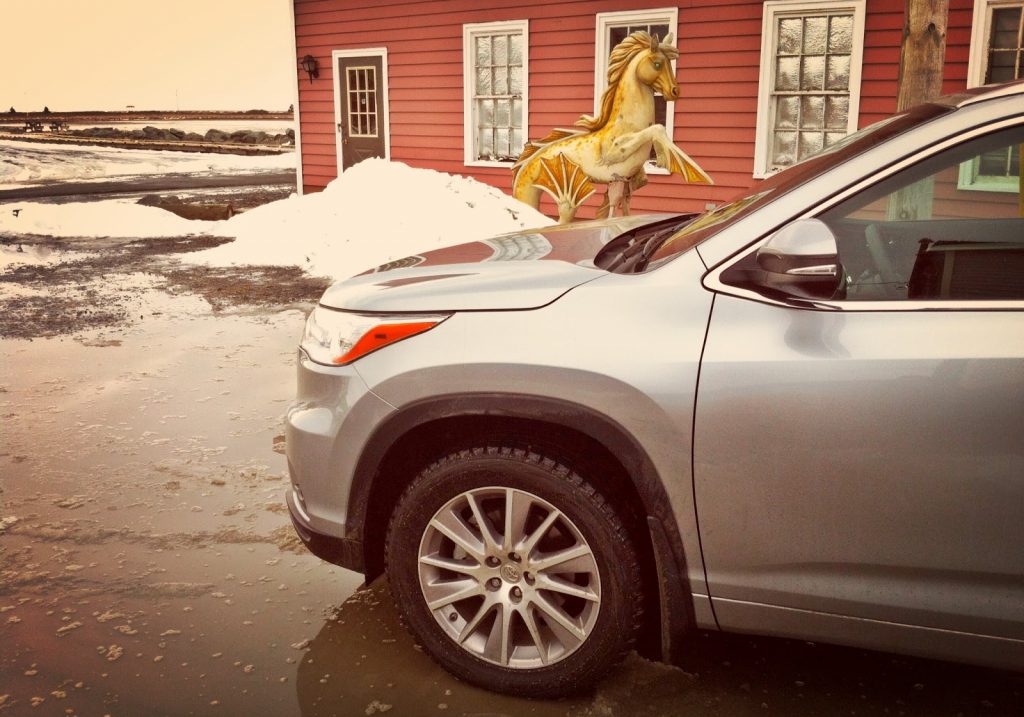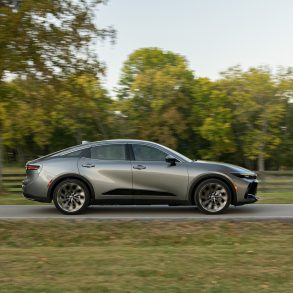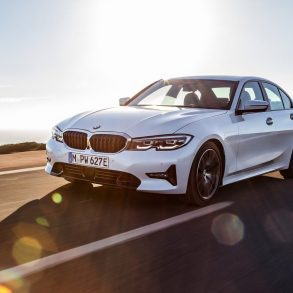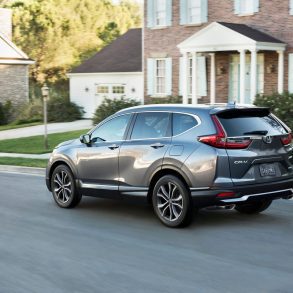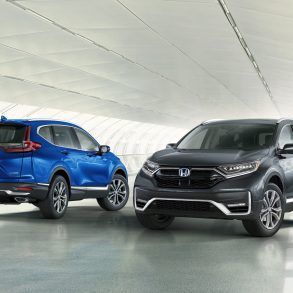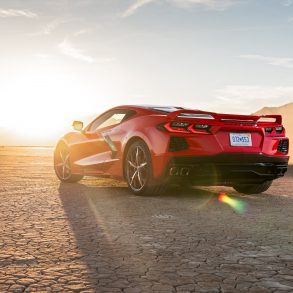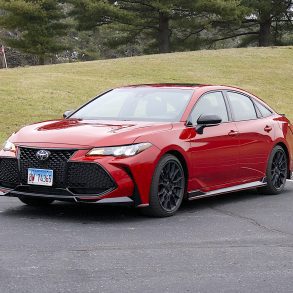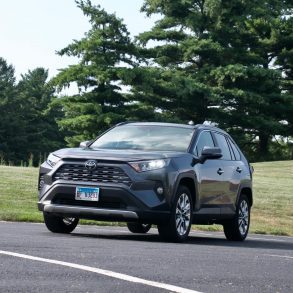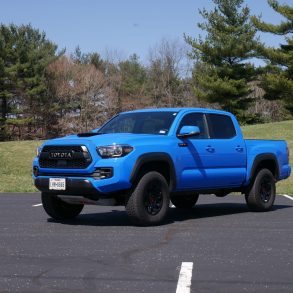Was that intentional?
Toyota Canada timed the on-sale date of their new eight-seat crossover with Valentine’s Day 2014. Initially, one would assume that Toyota would expect to find a Valentine’s Day-derived passion-filled response for a sports car like their Scion FR-S, or perhaps the future Supra production version of their FT-1 Concept from Detroit’s auto show.
Family cars, even neoteric ones like these jacked-up wagons, are about much more than jaw-dropping first impressions. Maybe a singularly focused sports car like the FR-S would woo you with nothing more than dinner at a loud restaurant; maybe the FT-1 needs nothing more than a hot body to seduce you. (After all, the concept didn’t even have an engine.)
| THE GOOD Feeling of quality pervades Rides like a big crossover Handles like a small crossover More assertive design Seats eight if you must Easy Speak |
THE BAD
Power tailgate got stuck for an hour
Some buttons are a long ways off
Intrusive highway wind noise Engine/trans working for economy Third row awfully snug for three Bit of a guzzler |
This Valentine’s Day, Toyota wants you to find a vehicle that’s appropriate for the life you actually lead, a car that can do more than haul legless children in the back seat or reside in a collector’s garage. The 2014 Toyota Highlander is not the car for your mid-life crisis. It is not the junior supercar you buy in early retirement.
Toyota wants this all-new, third-generation Highlander to be the vehicle you buy this Valentine’s Day knowing it will still be a faithful companion a decade from now.
That sounds dangerously similar to Toyota’s prototypical approach, but they’ve rarely executed this well.
No positive characteristic is more obvious in this 2014 Highlander XLE than the sensation of quality, not just in the materials used but in the way parts are assembled. Perceived quality isn’t exclusive to the driver’s quarters.
It’s seen in the stitching of the shelf that stretches across to the passenger door, the way the second row’s seat levers move solidly so access can be granted to the third row, the way the floor’s nasty bits are covered by carpet and plastic panels even in the back of the car.
|
2014 TOYOTA HIGHLANDER XLE AWD
Base Price * (CDN): $33,370 As-Tested Price * (CDN): $41,590 Engine: 3.5L DOHC 24-valve V6
Transmission: 6-speed automatic Horsepower: 270 @ 6200 rpm
Torque: 248 lb-ft @ 4700 rpm
Curb Weight: 3926 pounds Drive Type: all-wheel-drive Length: 191.1 inches Width: 75.8 inches Height: 68.1 inches Wheelbase: 109.8 inches Passenger Volume: 4041 litres Cargo Volume: 391 litres CV Behind 2nd Row: 1198 litres Max. Cargo Volume: 2356 litres Centre Console: 32 tennis balls Glove Compartment: 92 tennis balls EPA City: 18 mpg = 13.1 L/100km EPA Highway: 24 mpg = 9.8 L/100km
Observed: 18.5 mpg Observed: 12.7 L/100km * includes destination/delivery. GCBC was first to access this test vehicle, and mileage was below 2000 kilometres, which, combined with sub-zero temperatures all week, surely had an impact on fuel economy. |
Our week with this new Highlander wasn’t glitch-free. Wind noise around the A and B-pillars and especially around the sunroof was excessive on the highway. But worse, when the Highlander first arrived on the coldest of nights, upon carrying a load of groceries into the house, the power tailgate refused to close.
When it finally did – of its own accord, after I read the manual for half an hour – the Highlander refused to lock its doors, apparently not convinced the tailgate was closed. At this point the tailgate refused to open – until it did, of its own accord, half an hour later.
Cause for alarm? I originally thought so, but after testing the power tailgate numerous times on a daily basis over the remainder of the week I didn’t find a single issue.
Besides, the greater frustration felt by the driver won’t be a one-time issue with the tailgate but with the distance he or she must reach in order to access buttons on the far side of the dashboard control panel. The vast width of the eight-inch touch screen is partly to blame, no bad thing. Fortunately, voice commands are intuitive and always understood by the lady who lives inside the car.
Although a handful of buttons aren’t traditional buttons at all but just touch capacitive pads, they do offer feeling through little dots which make all the difference. And the pads do respond, unlike the touch capacitive heated seats “buttons” in the Buick Regal.
Toyota’s new Driver Easy Speak is one of the best car features I’ve encountered in years. It must be switched on before every drive, but after doing so, the driver’s voice will be projected into the rear of the Highlander (at the volume of your choice) through the speakers. It’s possible to speak just above a whisper and still be easily heard by children in the third row. It’s wonderful, and it can be turned off when the conversation turns to more adult-oriented Valentine’s Day subject matter.
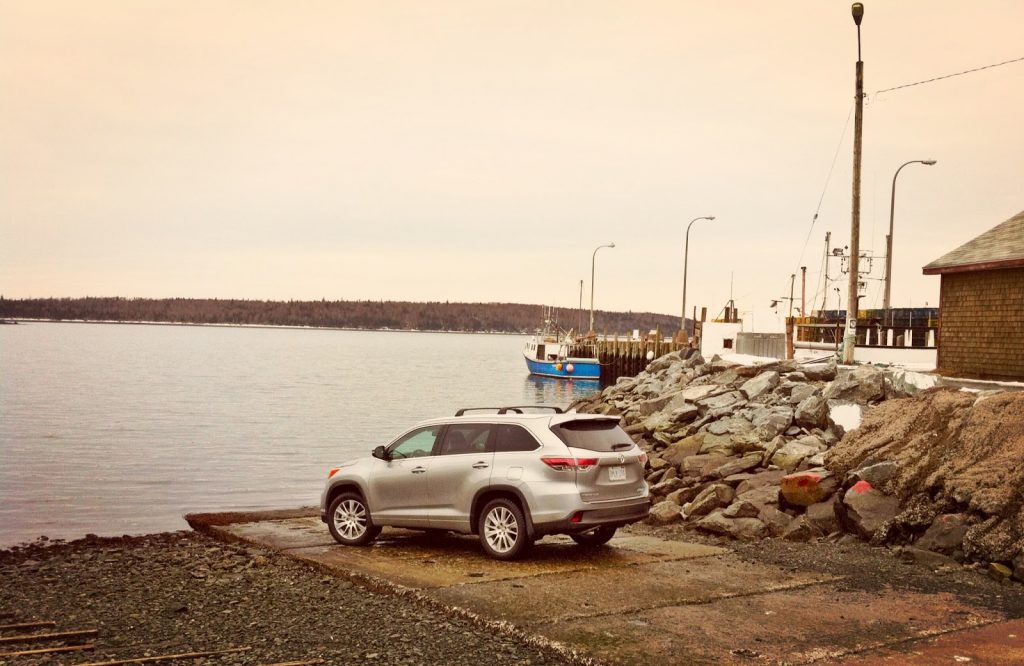 |
| All Photo Credits: Timothy Cain ©www.GoodCarBadCar.net Click Any Image For A Larger View – (iPhone 4 Through Tadaa’s Shoreditch Filter) |
Complaints regarding the Highlander’s interior are nitpicky in nature and few in number. The third row is supposedly fit for three now, but it’s still snug for two. It’s mostly suitable for small children who, these days, must sit in child seats that won’t work back there. There’s also 34% more space behind the third row than there was in the second-generation Highlander.
The second row is capacious and expandable. The centre console storage compartment is mammoth. Seats-folded cargo capacity of 2356 litres will make you a believer in the Highlander’s expanded width and length: it’s now just 14 inches shorter than a Sequoia, bumper-to-bumper. That cargo area is accessible through the glass portion of the tailgate, a glass portion that’s shaped to allow greater visibility out the back.
In XLE trim, the Highlander’s interior feels like something out of a de-stylized Lexus. Better yet, “de-stylized” means de-complicated, and in many ways the Highlander’s simplistic approach, because the car is so well built, generates a greater sense of luxury.
As positive an experience as you’ll have inside the 2014 Highlander, the driving experience does a superior job of setting this crossover apart. At nearly 16-feet long, the Highlander, like other family utility vehicles, ought to be roomy inside. But a Toyota with this much emphasis on comfort and ride quality and road isolation shouldn’t be able to feel this agile; it shouldn’t provoke the use of the word “nimble.”
Don’t read me wrong. The 2014 Toyota Highlander isn’t sporty. Yet to drive it quickly with a blindfold on – most likely an illegal activity in your jurisdiction – is to believe that this is a RAV4-sized vehicle. The Highlander’s steering feel isn’t completely unnatural. Brake feel is firm and consistent. Suspension movements are kept in check: there’s very little see-sawing effect at the nose and tail and body roll is much less of an issue than it was in the previous Highlander. No, it’s not sporty, so it’s not fun to drive aggressively. But it’s not at all painful to drive quickly, and the same can’t be said of many Highlander rivals which seem overweight, ponderous, and truckish.
It’s 270-horsepower 3.5L is certainly punchy, even in this slightly heavier all-wheel-drive Highlander XLE. But the 6-speed automatic is geared for economy, so the driver must do more than inquire through the throttle pedal about the possibility of finding more power. Your right foot must command it, and in so doing, you won’t find the Highlander to be a rival for the exuberant Ford Explorer Sport or even the surprisingly swift V6-engined Hyundai Santa Fe XL. Regardless, Highlanders bound for Canada won’t be made available with 4-cylinder engines.
In a few months, when 2014 Highlanders become common, the new version’s design won’t seem controversial. (It’s not as though the design is stirring up heated debate on the interwebs, but it has grabbed attention, both positive and negative, since debuting at last year’s New York auto show.) The RAV4-like shelf-creating taillamps are unfortunate, and some may feel the front end is more brash than bold.
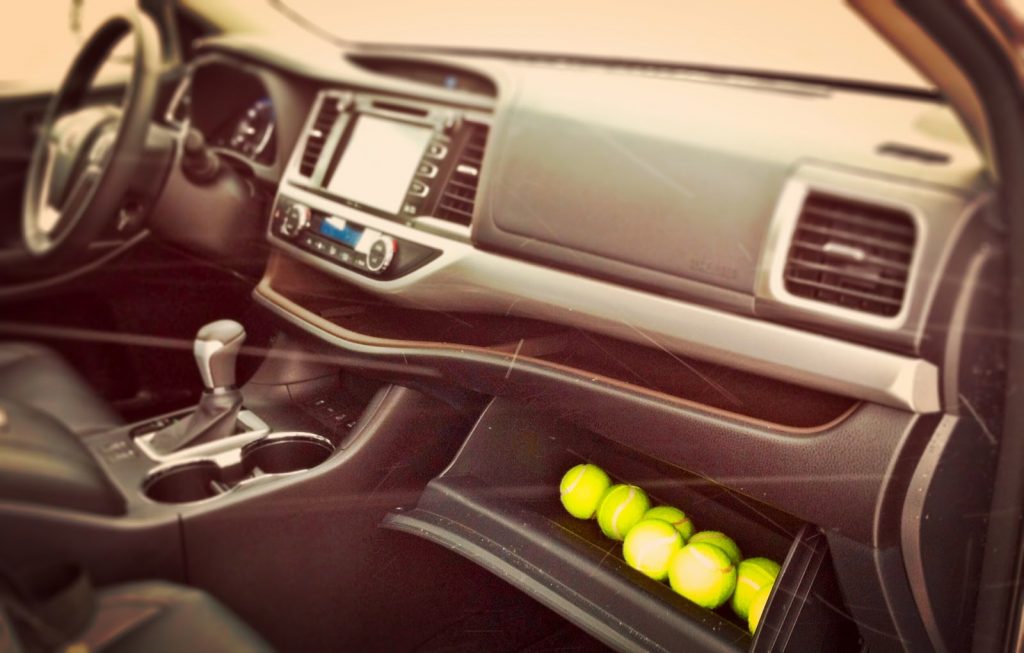 |
| GCBC Has Instituted ISTBTP, AKA Interior Storage Tennis Ball Test Protocol. You Can See More On The ISTBTP In Last Month’s Accord Hybrid Review, In This Tweet, And At Jalopnik’s Opposite Lock. The Highlander’s ISTBTP Results Are In The Spec Chart Above. |
A week with the new Highlander, admittedly in advance of its on-sale data and thus a first sight for most onlookers, did garner more second glances from fellow Halifax drivers than the red Beetle Convertible I drove in the dense fog last fall. Besides the fact that the new Highlander drives so much better than the outgoing Highlander and ignoring its superior perceived quality and easily understood infotainment unit, the 2014 Toyota Highlander’s sense of style stands out as the means by which Toyota will continue to grow Highlander sales.
Now the Highlander is more than just an obvious crossover choice for Toyota loyalists – it’s a utility vehicle that will actually get noticed.
I could take or leave the design, but I was nevertheless very disappointed to see the new Highlander depart GCBC Towers’ driveway last weekend. Normally, I’m anxious to see vehicles go, even the good ones, because they’re always replaced by something new to try. Yet one week later, our little family still misses the Highlander. Loathe though I am to pop the question, given the Highlander’s status as a practical everyday family car and not, you know, a Camaro ZL1, I must ask: Is that true love?
RECOMMENDED READING
Historical Monthly & Yearly Toyota Highlander Sales Figures
2013 Toyota RAV4 LE Driven Review
2014 Toyota Corolla LE Driven Review
2013 Hyundai Santa Fe XL Driven Review
2013 Infiniti JX35 Driven Review
2014 Kia Sorento SX Driven Review

